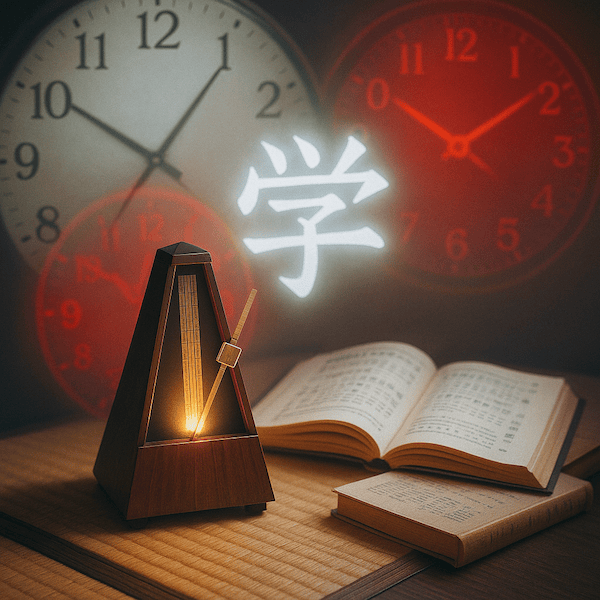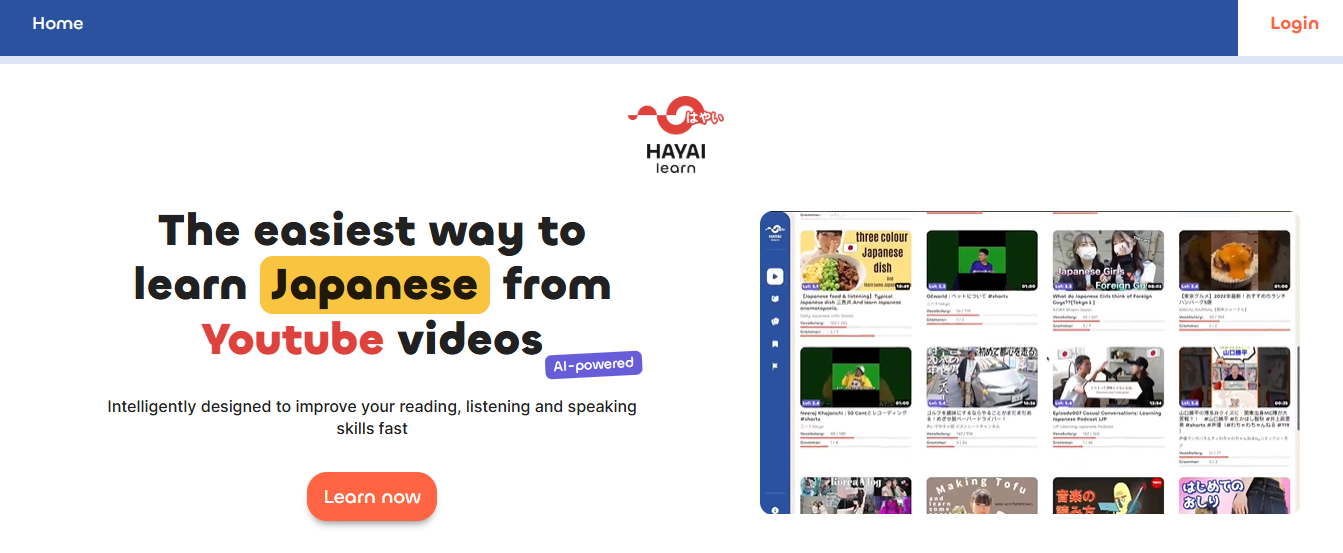Table of Contents
- The Question Every Japanese Learner Asks
- How Long Does It Take to Learn Japanese? Experiences From Reddit
- Basic Interactional Proficiency: 3–12 Months (Approx. 300–600 Hours)
- Intermediate Proficiency: 1–3 Years (Approx. 950–1600+ Hours)
- Advanced Proficiency: 3–5+ Years (Approx. 2000–4400+ Hours)
- Learning is Not Linear: Plateaus, Peaks, and Persistence
- Self-Study vs. Formal Instruction: The Reddit Consensus
- So, How Long Does It Take?
- Key Factors Shaping Your Japanese Learning Timeline
- Insights And Recommendations From Fellow Learners
- Learn Japanese Fast with HayaiLearn Today!
The Question Every Japanese Learner Asks

Every Japanese learner, at some point, wrestles with the same burning question: How long does it take to learn Japanese? The language captivates learners with its:
- Beauty
- Complexity
- Cultural depth
Ranging from anime and literature to business and travel, however, that same richness also presents formidable challenges.
A unique writing system, unfamiliar grammar, and layers of politeness make Japanese both fascinating and intimidating. The American Council on the Teaching of Foreign Languages (ACTFL) suggests you can become a "Novice" learner pretty fast. This just means you'll quickly be able to say hello and introduce yourself.
Realistic Fluency Timelines and Diverse Learning Journeys
Language expert Benny Lewis estimates that reaching fluency might take 400 to 600 hours of dedicated study. But these numbers rarely tell the whole story.
Real-life experiences vary enormously, and that’s where Reddit becomes invaluable. It offers an unfiltered window into the journeys of thousands of learners—some grinding daily, others taking a more relaxed path. Through honest anecdotes, hard-earned lessons, and shared frustrations, Reddit helps demystify the timeline, showing that the journey is just as important as the destination.
How Long Does It Take to Learn Japanese? Experiences From Reddit

Self-studiers of Japanese, there’s no one-size-fits-all timeline just a spectrum of experiences shaped by:
- Goals
- Habits
- Motivation
Across Reddit, learners have shared candid stories about their progress, setbacks, and methods.
Analyzing high-engagement posts and comments reveals that while some progress can be made in months, meaningful fluency often requires years of consistent effort.
Basic Interactional Proficiency: 3–12 Months (Approx. 300–600 Hours)
Many learners report being able to handle basic conversations, travel scenarios, and kana recognition within the first year of study. These early months often involve working through beginner textbooks, such as Genki I, acquiring core vocabulary (~1,000–2,000 words), and gaining exposure through media or apps.
A Redditor noted that after 300 hours, they still didn’t feel they had “learned Japanese” in a meaningful sense. Another estimated that in three months, learners might only be able to ask for directions or order food functional, but limited.
Intermediate Proficiency: 1–3 Years (Approx. 950–1600+ Hours)
Reaching an N3 or N2 level, where learners understand everyday conversations, consume native media, and read basic novels, often requires sustained effort over several years. One learner, studying 1.5–2 hours daily for 21 months, reported learning 6,500 words and 1,500 kanji, approaching N2 proficiency. Another spent three years in passive exposure before progressing to active use, playing Pokémon games and chatting daily with Japanese friends.
Advanced Proficiency: 3–5+ Years (Approx. 2000–4400+ Hours)
Reading novels fluently, understanding livestreams, or engaging in deep conversations tends to require thousands of hours. This aligns with the FSI’s 2200-hour classroom estimate for professional fluency, but Redditors often suggest doubling that for self-study due to inefficiencies in learning independently.
The user Kaiben tracked 4,400 hours over 4.5 years, achieving strong reading and listening fluency, as well as conversational ability. However, speaking and writing lagged due to less practice. Even after five years of study, another Redditor stated that they were still learning new words daily and emphasized that Japanese is not a language one “learns in three months.”
Learning is Not Linear: Plateaus, Peaks, and Persistence
A recurring theme among self-taught learners is the long “intermediate plateau,” a period where visible progress slows despite ongoing effort. This is especially true after initial gains (e.g., learning kana, grammar basics) give way to more complex hurdles, such as mastering over 3,000 kanji, internalizing natural sentence patterns, and achieving pitch-accent accuracy and fluid conversation.
Progress becomes less about the number of hours logged and more about the depth and consistency of practice. Many successful learners employ a combination of Anki (spaced repetition), native media immersion, conversation exchanges, and gradual reading challenges, such as manga or light novels.
Self-Study vs. Formal Instruction: The Reddit Consensus
One fascinating insight from the community is that even learners who begin in classrooms eventually become self-taught. As user moon_dust puts it: “All serious learners are self-taught,” especially beyond the intermediate level. Whether someone starts with a textbook or anime, mastery requires autonomous effort, often involving building personal vocab decks, tailoring content to one’s interests, and finding community support (like Discord or Reddit groups). This speaks to a broader truth: discipline and curiosity outweigh the method, especially in the long haul.
So, How Long Does It Take?
If your goal is:
- Tourist-level interactions → 3–6 months (with 1–2 hours daily)
- Casual conversations and media comprehension → 1–2 years
- Fluency across reading, listening, and speaking → 3–5+ years (2,000–4,400+ hours)
These timelines are based not on guarantees, but on patterns—shaped by motivation, consistency, and how well learners adapt to their own needs. The most successful Reddit users didn’t rush; they simply didn’t stop.
Key Factors Shaping Your Japanese Learning Timeline

How much time you spend each day or week directly affects how quickly you progress, but quality and sustainability are just as important as raw hours. Some Reddit users who reached advanced levels studied 2–3 hours a day over several years.
However, others caution that intensity without sustainability can backfire. One user described starting with five-hour study days, something they later regretted due to burnout. The consensus supports a manageable daily routine (even 30 minutes) maintained over time as the most effective approach for long-term progress and retention.
Personal Goals and Your Definition of "Fluency": Setting Your Sights on the Right Mountain.
What “fluency” means to you will significantly shape your timeline. Are you hoping to handle casual conversations, pass the JLPT N2 or N1, or use Japanese in a business setting? Each of these goals requires a different skill set and time investment.
One Redditor pointed out that even passing N1 (which can take over 3,000 hours) doesn’t necessarily equate to conversational fluency, especially if your study has been heavy on reading and listening but light on speaking. Without clear goals, it’s easy to feel lost or unsatisfied, even if you’re making progress.
Study Methods and Resources: Choosing Your Tools Wisely
Your choice of resources can either accelerate or hinder your learning. Many learners rely on proven tools like Anki, WaniKani, Genki, or Tae Kim’s Grammar Guide. But finding the right mix often takes trial and error.
One user spent their first six months experimenting with different apps and textbooks until they found a sustainable routine. Reddit users repeatedly stress the importance of sticking with practical tools long enough to see real results, instead of constantly hopping from one resource to another.
The Power of Immersion: Where the Magic Happens
Immersion is where the magic happens. While textbooks build your foundation, engaging with native content:
- Anime
- Dramas
- Novels
- Games
- Podcasts
deepens your intuition and listening skills. One user who clocked over 4,000 hours of study credits much of their fluency to daily immersion, including watching livestreams and reading novels. Immersion helps turn passive knowledge into active use, but it requires deliberate effort, like looking up new words or using Japanese subtitles early on, to be truly effective.
Language Background and Aptitude: Does It Really Matter?
While having prior experience with other languages can help you develop study strategies or discipline, most learners agree it doesn’t drastically shorten the Japanese learning curve. Even polyglots describe Japanese as one of the toughest languages they’ve tackled due to its grammar, kanji, and levels of politeness.
The Foreign Service Institute (FSI) ranks it as one of the most difficult languages for English speakers. Persistence and effective study habits often outweigh natural ability.
Insights And Recommendations From Fellow Learners

Plenty of language learners use Reddit to exchange ideas. One of the most common insights you’ll see is the importance of managing expectations regarding fluency.
Many express frustration around the unrealistic claims that promise fluency in just a few months. These narratives can create unnecessary pressure, especially for beginners. Japanese is a language that demands long-term commitment, often years, not months. Accepting this early on can help you avoid burnout and stay grounded when progress slows.
Establishing Sustainable Study Habits
Rather than relying on intense, short-term bursts of effort, Reddit users recommend developing sustainable routines. Starting with just 10 to 15 minutes a day can help build a study habit that feels natural and manageable. Over time, these small, consistent sessions create real progress. The key is finding a rhythm that fits your lifestyle and treating study time more like a hobby than a chore.
Knowing Your “Why” Learners who define a clear purpose for studying Japanese, whether it’s watching anime without subtitles, passing the JLPT, or working in Japan, report higher motivation and focus. Reddit anecdotes suggest that both intrinsic motivations (love for Japanese culture) and extrinsic ones (career goals) provide valuable fuel for staying committed during tough stretches.
Handling Burnout and Plateaus
Burnout and plateaus are common, especially during the intermediate stage when progress feels less visible. Reddit users report that switching study methods, taking brief breaks, or simply accepting slower periods as part of their routine can be helpful.
One learner noted they stop when their “brain gets foggy,” using breaks to protect long-term motivation. Understanding these dips as part of the process, not signs of failure, is crucial. Engaging with Community and Using the Language
Learn Japanese Fast with HayaiLearn Today!

When it comes to learning Japanese, immersion is one of the best ways to get proficient. HayaiLearn takes immersion to the next level by helping you learn Japanese through watching YouTube videos.
This web app allows you to learn vocabulary and grammar from the subtitles of any Japanese YouTube videos. You can even organize videos into different albums and use them as teaching materials, either for sentence examples or reviewing words.
With the use of:
- AI
- Gamification
- SRS
HayaiLearn makes learning Japanese fun, motivational, and fast.
